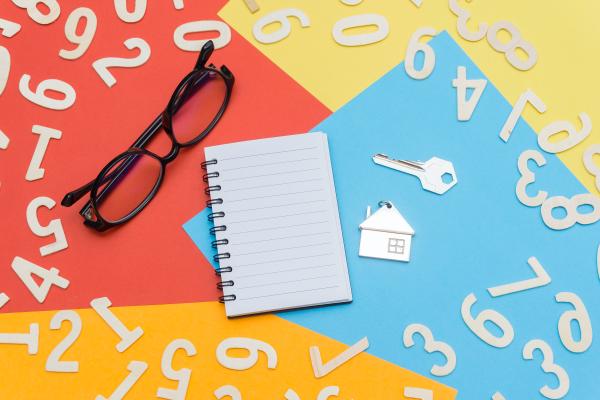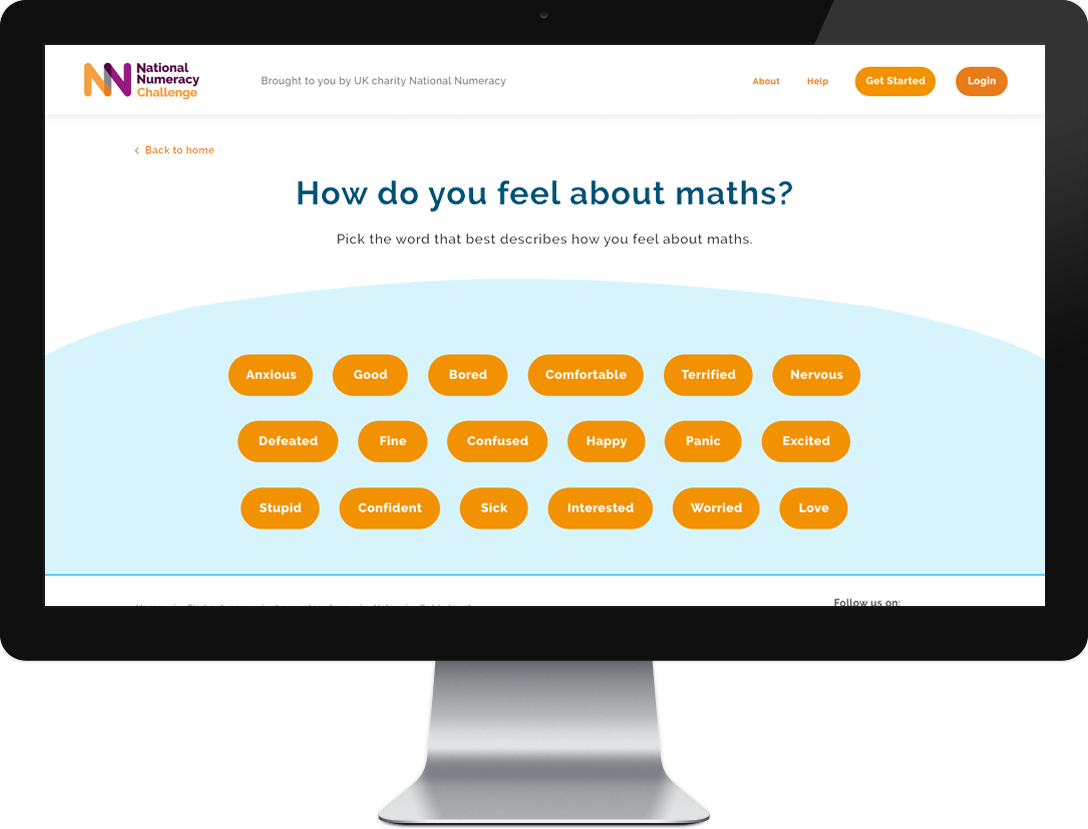Q: What's the difference between maths and numeracy?
A: There are around 26 types of maths including algebra, geometry and probability - this is what most people think about when they think about classroom maths. Numeracy, on the other hand, is the ability to understand and use basic maths in real-life situations, at home, work or school.
Numeracy, or what we sometimes call ‘everyday maths’ is about the skills needed for managing money and household budgets, reading a train timetable, weighing ingredients, measuring medicine and more.
Read more about numeracy and what it's useful for
Q: I don't have a maths brain. Some people are just born good with numbers, aren't they?
A: No, there’s no such thing as a "maths gene" or "maths brain". No-one is born as a “numbers person”. Most of us can become numerate. Early experiences at home and at school shape how we feel about maths. A positive mindset and the confidence to keep trying are key to becoming comfortable with numbers.
Read more about the 'maths gene' debate
Q: I have dyscalculia. Can I get more confident with using numbers?
A: Yes, you can. Some people with a specific learning difficulty such as dyscalculia may find learning maths much harder, but support is increasingly available from places such as The Dyscalculia Network and National Numeracy.
There's evidence that, with certain tools, you can develop ways of handling activities involving numbers. Our ambassador Iona Bain has dyscalculia.
Iona and others talk about their experiences and give their tips
Q: I hated maths at school. Surely it's too late for me now?
A: Many adults had difficult, even traumatic experiences of learning maths at school. But improving confidence with numbers is different to going to school. You can learn online at your own pace, in private and you only need to focus on the bits you're interested in.
If you do choose to study at a college, the tutors will not treat you like a child but as an adult with life skills and experience. You can make a start now with the free National Numeracy Challenge.
Q: Why is maths relevant to me? I don't use it at home or work.
A: Some types of school maths don't crop up in our day-to-day lives. But numeracy skills crop up all the time, for everyone, no matter what we do for a living. Estimating the cost of our shopping, getting to appointments on time, measuring ingredients and cooking meals, understanding our bills and pay slips, telling the time and doing DIY are all examples of how we use numeracy in our lives daily.
Q: I'm a creative person, so I don't need maths, do I?
A: Yes, you do. You don’t have to be an accountant or data analyst to need numbers in your everyday life. Creatives need numbers as much as everybody else. Making music, graphic design, fashion design, DJ-ing, creating online content, social media influencing, organising a theatre production.... Every creative role or hobby has some element of numbers in it, from measuring materials and counting bars or beats to designing, recording time, and so much more.
Q: How can improving numeracy skills and confidence help the UK economy?
A: Having confidence with numbers and the ability to use maths in everyday situations can open the door to new opportunities for individuals, such as landing a job or progressing in a career.
Research from Pro Bono Economics also shows that low numeracy costs the UK economy around £25 billion a year.






